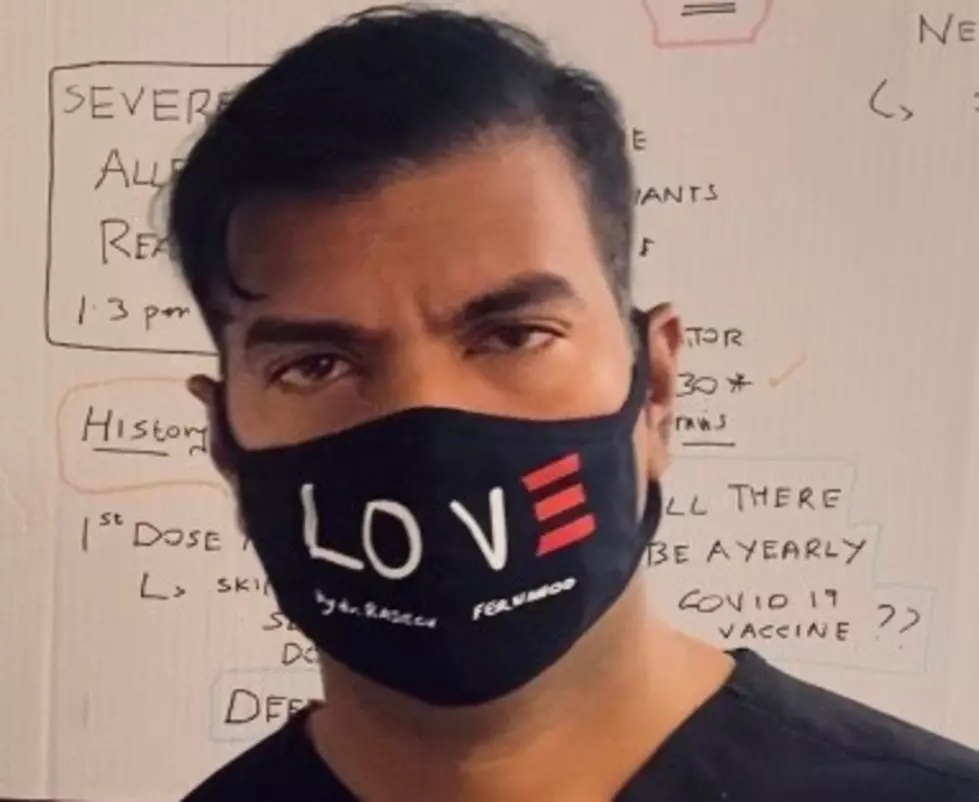
Should Mask Mandates and Restrictions Be Lifted, Top Doctor Comments
When you need to know what's happening with the coronavirus, join KICKS 105.5 every Thursday morning. Dr. Rajeev Fernando answers your COVID-19 questions.
Dr. Rajeev Fernando is one of New York's Top Infectious Disease Specialists and this week he answers your COVID-19 questions on states dropping mask mandates and lifting restrictions, if there's a difference between COVID vaccines and when will we get long term data on effects of the vaccine.

Cases seem to be declining, more and more people are getting vaccinated, and now some states are lifting mask mandates and restrictions. Is this something that we should be doing, or are we getting a little too ahead of ourselves?
"I certainly think we're getting a little bit too lax. A few states have lifted their mask mandates and opening up all businesses by next week. These are all bad examples of how to handle a pandemic. Texas, which is one of the states lifting restrictions, is one of the worst affected by COVID-19. Every decision made should be based on science and epidemiology. I think it's a bad mistake and they are just opening themselves up to having more new infections and it's definitely worrisome. I'll be honest, it's hard for me to do interviews and shows where I'm always looking like the bad guy because I have to keep saying be careful. I understand it's pandemic fatigue, people are upset and depressed, it's equally frustrating to me as well. Now we have a New York strain of the virus which is circulating on the east coast and 60 thousand infections a day is still not a good base line. It's not the end of the road right now, and we will have problems with these restrictions being lifted going forward."
We have a question from Kelly in Brewster who is a little uncertain about getting the vaccine. She wants to know when could the public expect to get information on long term effects from the vaccine?
"Great question. To be perfectly honest with you, these vaccines have been studied for months. There have been different phases studying animals, humans in small numbers, and humans in large numbers which is what we call the phase three trials, and that data has been available for awhile now. So far, there hasn't been any major side effect from either of the two vaccines. Remember, neither vaccine contains any virus in them and they have been very well tolerated. Short term effects after receiving the vaccine has included fever and some chills, but that just tells you that your immune system is working really well, actually by day two after the vaccine, people are back to normal. It's a very good time to get the vaccine, and more and more people are taking it. Even if you get the virus after receiving the vaccine, you will not be hospitalized and you will not die, you just may get a milder syndrome. Remember, both vaccines have 95% efficacy, and the new Johnson and Johnson has a 90% efficacy so these are great vaccines right now."
Mike in Danbury has a vaccine question as well. He wants to know if there's a difference between the Pfizer and Moderna vaccine, and which one would you consider the better one?
"There is absolutely no difference at all between the two, they use the same technology. The only difference is really the cold chain process, initially Pfizer had to be stored in very low temperatures, but there's more data coming out which says that the Pfizer vaccine can be stored at the same temperature as Moderna, and that's brand new information, but they both work in the same way. My answer is if someone says would you like a vaccine, just say I'll take whatever you have. Both will keep you safe, and it's a guarantee 100% after receiving the vaccine you will not be hospitalized, and you will not die."
LOOK: Answers to 30 common COVID-19 vaccine questions
While much is still unknown about the coronavirus and the future, what is known is that the currently available vaccines have gone through all three trial phases and are safe and effective. It will be necessary for as many Americans as possible to be vaccinated in order to finally return to some level of pre-pandemic normalcy, and hopefully these 30 answers provided here will help readers get vaccinated as soon they are able.
More From 94.3 Lite FM









